 Our Lady of Fatima, Mother of Jesus,
Our Lady of Fatima, Mother of Jesus,
Please Pray for Us and the Whole World!
(America Needs Fatima) Our Lady of Fatima, Mother of Jesus, charged the three little shepherd children (Lucia dos Santos and her cousins Francisco and Jacinta Marto) to tell the world that she was deeply upset by the wickedness and corruption of mankind, she warned that if mankind did not amend their ways, a terrible chastisement would come that would annihilate many nations — are we living in those times today?
The punishment could be avoided only if mankind would amend their ways, changing their lives, Russia and the world were consecrated to the Immaculate Heart of Mary and mankind did communion in reparation for their sins.
Our Lady of Fatima stated that obedience to her requests was a condition to avoid the apocalyptic punishments that she predicted, therefore since her requests have not been irrefutably kept, it is logical that God’s vengeful righteous and purifying wrath should fall upon mankind — Our Lady promised after the punishments, “Finally, my Immaculate Heart will triumph and there will be a certain period of peace.”
God’s Wrath Against Sinful Humanity
The wrath of God is being revealed from Heaven against all the godlessness and wickedness (sinfulness) of people, who suppress the truth by their wickedness, since what may be known about God is plain to them because God has made it plain to them. For since the creation of the world, God’s invisible qualities, His eternal power and Divine nature have been clearly seen, being understood from what has been made, so that people are without excuse.
For although they knew God, they neither glorified Him as God nor gave Thanks to Him but their thinking became futile and their foolish hearts were darkened. Although they claimed to be wise, they became fools and exchanged the Glory of the Immortal God for images to look like a mortal human being, birds, animals and reptiles.
Therefore God gave them over in the sinful desires of their hearts to sexual impurity for the degrading of their bodies with one another. They exchanged the truth about God for a lie, worshiped and served created things rather than the Creator, who is forever praised. Amen!
Because of this, God gave them over to shameful lusts. Even their women exchanged natural sexual relations for unnatural ones. In the same way the men also abandoned natural relations with women and were inflamed with lust for one another. Men committed shameful acts with other men and received in themselves the due penalty for their error.
Furthermore, just as they did not think it worthwhile to retain the knowledge of God, so God gave them over to a depraved mind, so that they do what ought not to be done. They have become filled with every kind of wickedness, evil, greed and depravity. They are full of envy, murder, strife, deceit and malice. They are gossips, slanderers, God-haters, insolent, arrogant, boastful; they invent ways of doing evil; they disobey their parents; they have no understanding, no fidelity, no love, no mercy. Although they know God’s righteous decree that those who do such things deserve death, they not only continue to do these very things but also approve of those who practice them. –Romans 1:18-32
Fatima Prayers in Reparation
O My Jesus, forgive us our sins, save us from the fires of Hell, lead all souls to Heaven, especially those in the most need of Thy mercy. Amen!
My God, I believe, I adore, I trust and I love Thee! I beg pardon for all those that do not believe, do not adore, do not trust and do not love Thee. Amen!
O most Holy Trinity, Father, Son and Holy Spirit, I adore Thee profoundly. I offer Thee the most precious Body, Blood, Soul and Divinity of Jesus Christ, present in all the Tabernacles of the world, in reparation for the outrages, sacrileges and indifferences by which He is offended. By the infinite merits of the Sacred Heart of Jesus and the Immaculate Heart of Mary, I beg the conversion of poor sinners. Amen!
Most Holy Trinity, I adore Thee! My God, my God, I love Thee in the Most Blessed Sacrament. Amen!
O Jesus, it is for the love of Thee, in reparation for the offenses committed against the Immaculate Heart of Mary and the conversion of poor sinners. Amen!
If You Were to Die Today, Where Will You Spend Your Eternity?
“God does not send anyone to Hell,
rather they choose it for themselves.”
-Pope John Paul II
You May Know the Joy of Salvation, Forgiveness of Sins
and the Assurance of Eternal Life in Heaven Today,
Through The Good News of Christ Jesus!
Related: The True Story of Fatima, ‘Miracle of the Sun’ -America Needs Fatima
Final Battle Between God and Satan will be Over Marriage and the Family -Church POP
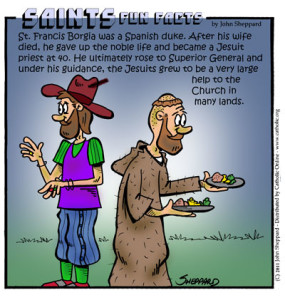
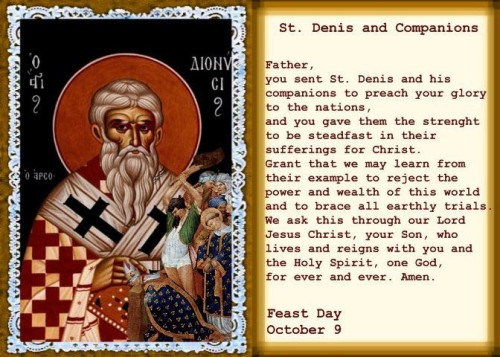 Saint Denis Pray For Us
Saint Denis Pray For Us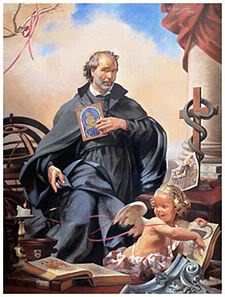
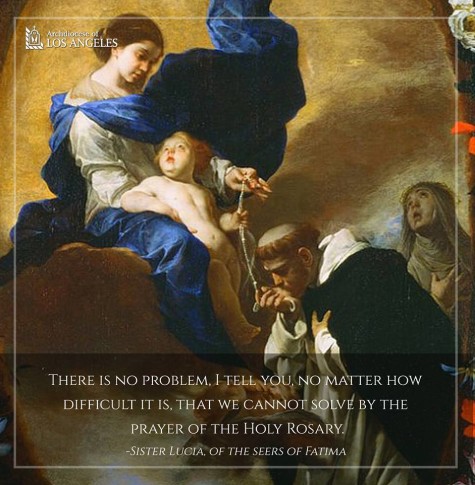 Happy Feast Day of Our Lady of the Holy Rosary
Happy Feast Day of Our Lady of the Holy Rosary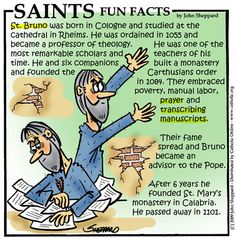
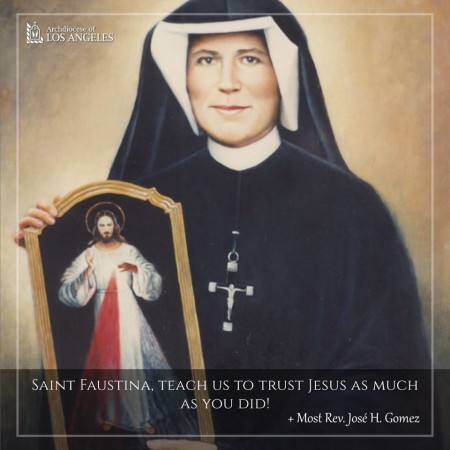 Saint Maria Faustina Kowalska (1905-1938)
Saint Maria Faustina Kowalska (1905-1938) Our Lady of Fatima, Mother of Jesus,
Our Lady of Fatima, Mother of Jesus,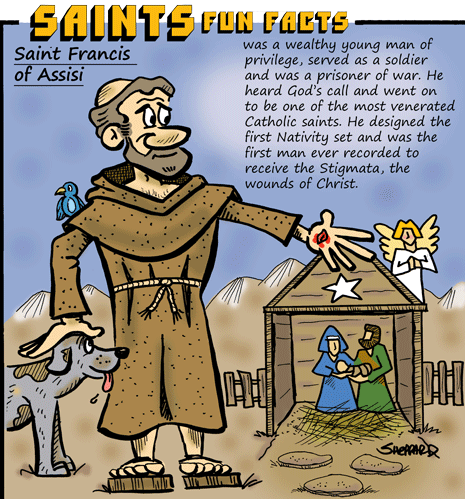
 St. Mother Theodore Geurin (1798-1856)
St. Mother Theodore Geurin (1798-1856) Celebration of the Feast of Our Guardian Angels
Celebration of the Feast of Our Guardian Angels